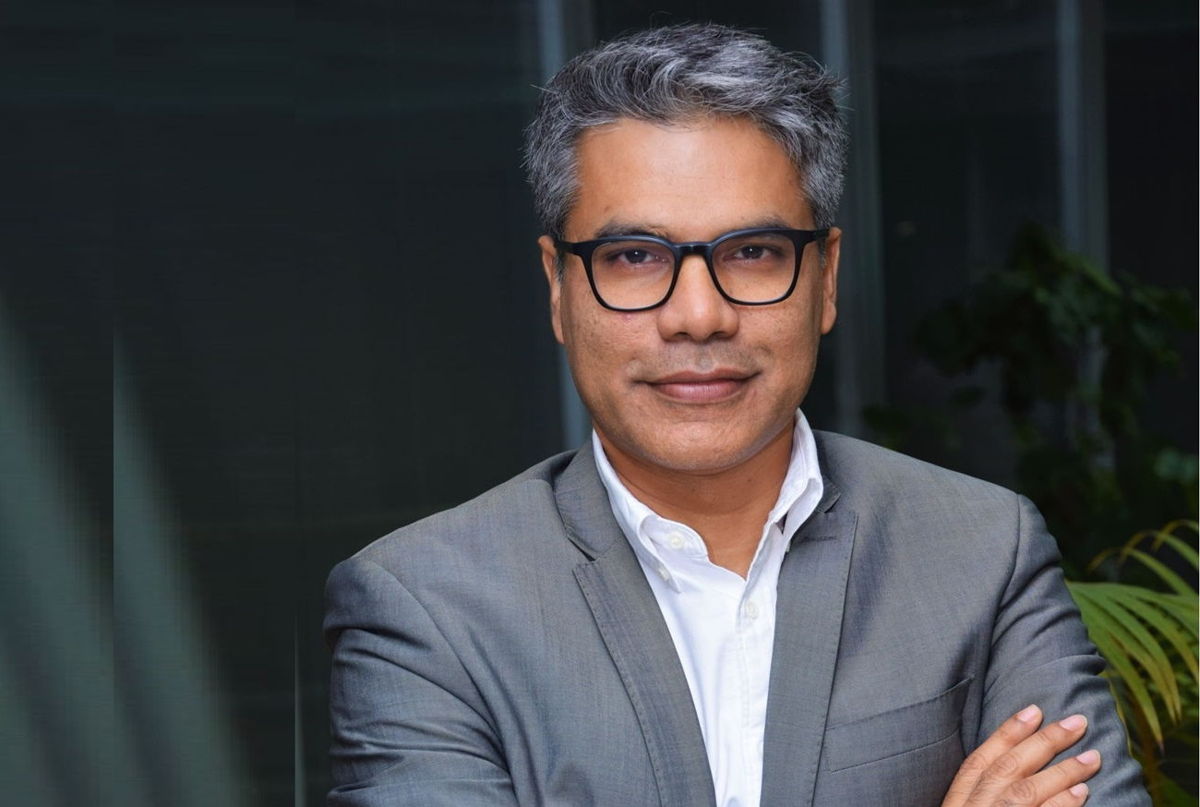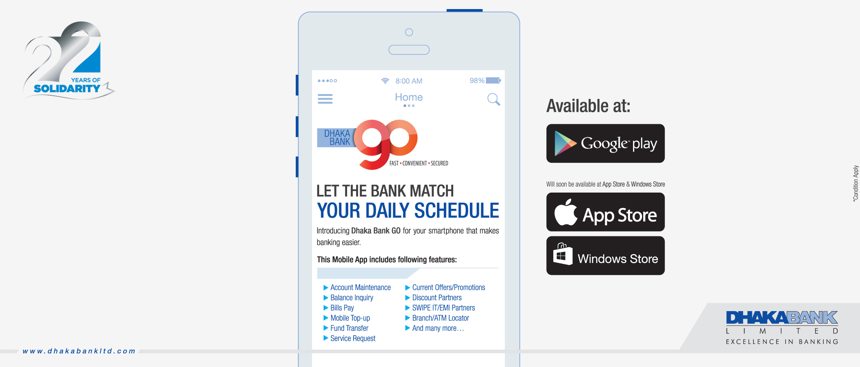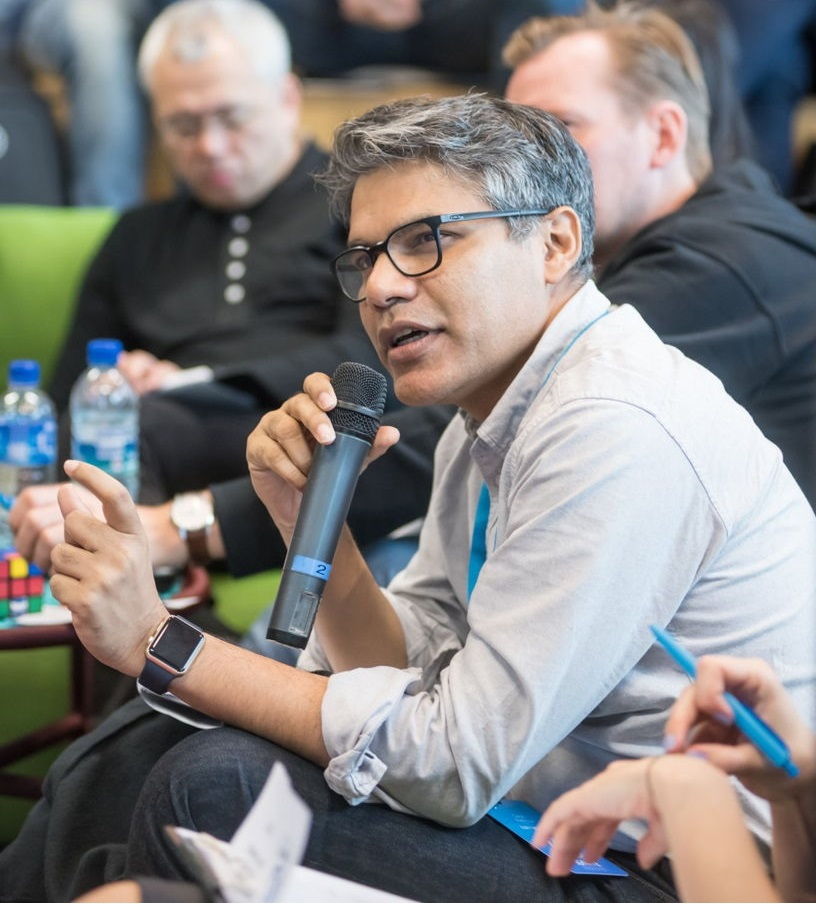
Since his appointment as chief executive officer of Telenor Health in 2015, Sajid Rahman has been instrumental in spearheading the launch of a host of paid subscription products, has successfully positioned Tonic, the flagship product of Telenor Health, as the ultimate healthcare bundle brand in the country, and has significantly grown the user base, with a focus on global expansion.
We first interviewed Mr. Rahman, as the CEO of Telenor Health, in 2016 (it is a brilliant read, you may find it here) and recently Ruhul Kader sits down with one of the most dynamic and powerful tech CEOs in the country to find out what happened at Telenor Health in 2017 and to pick his brain about the strategy of Telenor Health, the state of its business today and ambition going forward, future of health-tech in Bangladesh, startup ecosystem in the country (Mr. Rahman is a prolific angel investor himself), and his lessons from 2017 and contemplates what 2018 may bring for the tech industry in Bangladesh.
Future Startup
First of all, please give us an overview of 2017, of things that you have done at Telenor Health.
Sajid Rahman
The last year went smoothly for us. Programs were executed according to the way we had planned. We launched Tonic Basic, one of our major products in mid-2016. So, 2017 was a period to seize a place for it in the market.
Then, we expanded to other verticals, we have launched a few paid products as well as added more services to our bundle in the middle of 2017.
Our paid product covers higher cash coverage, doctor's appointment, and many other features. The response we're getting is very positive. It is humbling to serve millions of people on their healthcare journey.
[su_divider top="no" divider_color="#adacab" link_color="#edde29" size="1"][/su_divider]
A Message From Dhaka Bank Limited

INTRODUCING DHAKA BANK GO - LET THE BANK MATCH YOUR DAILY SCHEDULE
Dhaka Bank Go gives you secure access to your Dhaka Bank Accounts and Credit Cards and other exciting facilities from your mobile devices anytime, anywhere. Explore and enjoy the infinite opportunities. Learn more here.
[su_divider top="no" divider_color="#adacab" link_color="#edde29" size="1"][/su_divider]
Our paid product covers higher cash coverage, doctor's appointment, and many other features. The response we're getting is very positive. It is humbling to serve millions of people on their healthcare journey.
Future Startup
We last spoke in early 2017 and had quite a discussion about the ambition of Telenor Health and I want to go back to that. First, I want to quote from the interview: “We have started in Bangladesh and plan is to provide health care and well-being information, health insurance, and health consultation services to millions of people over mobile phones. Our goal is to ensure quality health service at an affordable cost to the masses”. How much do you think Telenor Health has evolved over the past 12 months and how much of that ambition have you achieved?
Sajid Rahman
We have made significant progress towards our ambition. At present, around 5 million people are receiving our services, like health information and cash coverage, free of cost through Tonic.
Our basic health cash covers an allowance of BDT 1000 if members stay at a hospital for 3 nights. Although, for the health consultation, they need to pay a fee in the form of talk time charge since a doctor is also involved in the process.
We provided almost 300,000 consultation services last year to people who would've no access to such service otherwise.
Future Startup
How many of those 300,000 customers are getting back to you for a second time? I mean, what is your customer retention rate?
Sajid Rahman
The last time we checked, we estimated that out of our total service provided about 40% are returning customers. The duration of people having health consultation over the phone has also risen.
One point to note here is that healthcare services are event-based and one only use the service when one gets sick which we hope is not often.
We have made significant progress towards our ambition. At present, around 5 million people are receiving our services, like health information and cash coverage, free of cost through Tonic.
FS
Through your current product, you offer a bundle of health-related services: there are health-related information services for free, doctor consultation over the phone, discount at hospitals; you also partnered with Doctorola for appointment scheduling. Can you tell us about your strategy going forward?
Sajid Rahman
We're definitely going to broaden our service offering to cater both the individuals and their respective families as well.
One of the strategic priorities going forward is to design offerings that make sense for an entire family as opposed to the only individual. We aim to become the healthcare partner for our member’s family.
We are also targeting to launch products on a much broader scale. There is a large portion of the population who still have no access to healthcare due to low income. We want to include them in future. This is about taking healthcare to the masses.
Artificial Intelligence (AI) is another opportunity that we plan to explore. We've been mulling over the ways we can integrate AI into our services, like in the consultation service. It'll be helpful in reducing customer lead time. AI can collect the initial data of the patient/user for the first 2/3 minutes until a human doctor becomes available.
We also want to make our products more personalized. So, for instance, if someone has diabetes, we would be looking out to provide additional. We are just getting started and there is a huge potential going forward.
FS
You offer two paid products, which has two paid options, Astha and Shurokkha and there is Tonic corporate where you offer dashboard and other facilities? How are these paid products doing?
Sajid Rahman
We offer 3 main products under the following categories: Tonic Basic, Tonic Astha, and Tonic Shurokkha. All of these are available for individual users, of course. Tonic Basic is for free and other two are paid products.
On the other hand, we've observed that corporates often want to include their employee base into health programs. For corporates, we offer Tonic Astha and Tonic Shurokkha in a customized manner depending upon the requirement. They can have a dashboard to track the service used by the employees.
Tonic Astha and Shurokkha are paid products and showing strong tractions. We are receiving excellent responses from various organizations and many of them have already made bought the package for their employees.
In order to reach out to individual customers, we have collaborated with several pharmacies so that when customers come to purchase medication, they also receive the benefits of our products.
Although we have traditional channels of marketing, since we deal in the healthcare industry, we decided to promote through pharmacies. As we go forward, we plan to explore several other channels as well.
One of the strategic priorities going forward is to design offerings that make sense for an entire family as opposed to the only individual. We aim to become the healthcare partner for our member’s family.
FS
How does your overall sales process work?
Sajid Rahman
Our members take our service from three different channels. They mostly come through the USSD channels which is through mobile phones.
Then, there are customers who come through social channels and via pharmacies and other similar channels. We have also launched scratch card and this is panicking up rapidly.
FS
How does your product development work, given the fact that it seems quite complex from the outside?
Sajid Rahman
Our product development is a centralized process with different trams managing different verticals like the partnership, cash coverage, Doctor Consultation etc.
It looks like divisional in nature where each product is managed by an independent team.
We offer 3 main products under the following categories: Tonic Basic, Tonic Astha, and Tonic Shurokkha. All of these are available for individual users, of course. Tonic Basic is for free and other two are paid products. On the other hand, we've observed that corporates often want to include their employee base into health programs. For corporates, we offer Tonic Astha and Tonic Shurokkha in a customized manner depending upon the requirement. They can have a dashboard to track the service used by the employees.
FS
How big is your team now?
Sajid Rahman
Our team is almost 62 people-strong.
It is a mix of doctors, coders, and commercial members.
Throughout the last two years, we hired a lot. Our team size more than doubled in 2017.
FS
Theoretically speaking, you basically offer a bundle of services by working with different partners from different areas such as health insurance provider, doctor scheduling provider and so on. Do you see any long-term conflict of interest here with your partners that you bundle may weaken their individual offerings?
Sajid Rahman
Some components of our product like content and Doctor Consultation is managed by us directly while other components like Insurance etc. are provided by partners. We are essentially opening up a much larger market for our partners.
Let me explain it to you. For example, our doctor appointment scheduling feature is managed by Doctorola. They offer the same service independently. and when they collaborate with us, people who're taking our service are also taking Doctorola's service…..meaning more businesses for Doctorola. This applies to all of our partners.
Our understanding of the healthcare industry is that it's too big an industry for one player to provide every service possible. We are building an ecosystem through which we will be able to help our users to have best healthcare services while helping relevant healthcare companies to reach out to more customers using our channel.
FS
You don’t offer anything like Telemedicine in the form of video-chat yer, do you plan to get into that in the near future?
Sajid Rahman
Patients can already do instant messaging with their doctors in our existing product. The textual communication often takes place in real-time. We haven't added a video option yet, but hope to do so very soon.
FS
Going forward, what are the challenges you anticipate?
Sajid Rahman
Changing people's behavior and attitude towards something is one of the ways large companies become large in the first place.
If you look at businesses like Google and Facebook and Uber, they have completely changed how we operate. Ours is a similar business as well where we will have to make a significant change in how people perceive and consume healthcare services.
This, I think, would be one of our enduring challenges in the times to come. In order to achieve aimed growth, we need to convince people that what we are offering is what they need to address some of their healthcare requirements.
It is true that technology has been changing every aspect of our lives. But if you look around you would see that there are not that many big digital healthcare companies around the world because this is such a sensitive and difficult market to crack. So, convincing people remains to be a major challenge for us.
But, there is a silver lining in the fact that in developing markets you often see a tendency of leapfrogging. These markets sometimes catch up with newer technologies faster than developed ones. Tonic, in this regard, has got a real potential in Bangladesh.
Apart from that, we, of course, have other common challenges, such as - available resources to scale in future. But, once people become accustomed to our product, these problems will be easy to overcome.
If you look at businesses like Google and Facebook and Uber, they have completely changed how we operate. Ours is a similar business as well where we will have to make a significant change in how people perceive and consume healthcare services.
FS
What are your plans for 2018?
Sajid Rahman
We will, of course, continue to expand our services by introducing new products and verticals. We have other plans as well.
Our products, as you can see, are built to be tested and marketed in Bangladesh. But our ambition has always been to go beyond the national border. As our products show satisfactory performance, we plan to expand into a number of foreign markets soon.
FS
If you look at the overall digital ecosystem in Bangladesh, there are reasons to be a realist and skeptic about the real potential of building large-scale venture-backed digital technology businesses in the country. For instance, according to several sources, our smartphone penetration is around 30% only, out of our 160 million people, Google says only 14 million use internet daily. Taking these issues into consideration, how do you think they affect Tonic?
Sajid Rahman
Our product is designed in such a way that people with low-end feature phones can easily access it.
Apart from app-based consultation service--which happens via instant messaging--, you don't need a smartphone. I think that is not a big challenge for us.
FS
What do you think about startup ecosystem in the country? I want to quote from your previous interview: “second thing is that when I go to all these startup events here, I see people working on the typical space like ecommerce, ride-sharing, music and a few other common verticals but I don’t see many big initiatives or serious entrepreneurs working in more difficult space like health, agriculture, payment, and education. One of the reasons is probably because most of the people are working on ideas that are established somewhere else. People are thinking in a bubble and are not coming out of it. We need to start with understanding our local problems and solve problems that are relevant to our market. Thirdly, we don’t have an investment ecosystem yet. Early-stage founders really struggle to raise funds. Angel investing is not a thing yet and we don’t have that many active VCs. If you look at other markets there are people who made money in the old economy and are investing in tech companies but that’s not happening in Bangladesh yet.” What is your take now after a year? What do you think about the future?
Sajid Rahman
In general, I feel rather bullish about the smartphone penetration and think that it'll increase in the future. I also think that you've brought up a valid point about building VC-backed digital companies. But, it appears to me that a number of VCs are paying keen attention to Bangladesh because they think that the market here has good potentials.
In my opinion, healthcare sector in Bangladesh hasn't been able to keep pace with, say, the e-commerce and ride-hailing sectors. So, it will continue to hold a lot of space for growth.
Secondly, I think that digital financial services will see a boom in the near future. In case of the logistics industry, I don't yet see a company with high-potential. But because the need for efficient and reliable logistics service grows every day, we would soon see companies emerging in this space.

FS
What are the some of your major lessons from 2017?
Sajid Rahman
I learned one important thing in 2017, actually I re-learned it since we all sort of know it, that sometimes we should let go of things that don’t yield the expected result.
Holding on to unfruitful ventures or failing projects or any other for that matter often take up a huge amount of our time--the time which we could otherwise use productively.
Everything that we do in life is a tradeoff against something that we are not doing at that moment. And when we decide to stop doing something, we make room for something more meaningful to take its place.
FS
A few books that you read and enjoyed in 2017 that you would like to recommend to others.
Sajid Rahman
Principles by Ray Dalio is a brilliant read that I enjoyed a lot.
FS
What are your resolutions for 2018?
Sajid Rahman
As you might know, I participate in marathons sometimes which I, unfortunately, couldn't do last year. So, this year, I plan to take part in an ultra-marathon.
Everything that we do in life is a tradeoff against something that we are not doing at that moment. And when we decide to stop doing something, we make room for something more meaningful to take its place.
FS
How do you stick to your goals?
Sajid Rahman
In my opinion, making activities (aimed to achieve a goal) into a habit is an effective way of sticking to your plan. Also, to make an activity a habit, you need to make incremental improvement and do it better every day.
Let's say, someone needs to exercise for one hour every day. So, on the first, s/he should begin with exercising for not more than 20 minutes and overtime increase it to half an hour. By improving gradually, it will become a regular habit.
[su_note note_color="#ffffff" text_color="#050a45" radius="15"]This story is made possible in part by our friends at Dhaka Bank, whose generosity enables us to publish premium stories online at no cost to our readers. Dhaka Bank has introduced an excellent mobile banking app, Dhaka Bank Go. Dhaka Bank Go gives you secure access to your Dhaka Bank Accounts and Credit Cards and other exciting facilities from your mobile devices anytime, anywhere. Explore and enjoy the infinite opportunities. Learn more here.[/su_note]
-
Notes
1. Interview by Ruhul Kader, Transcription by Sheikh Rahatil Ashekan
2. Further reading on Tonic and Telenor Health here.
3. Further reading on Sajid Rahman and his work here.
4. Photo courtesy: Telenor Health
